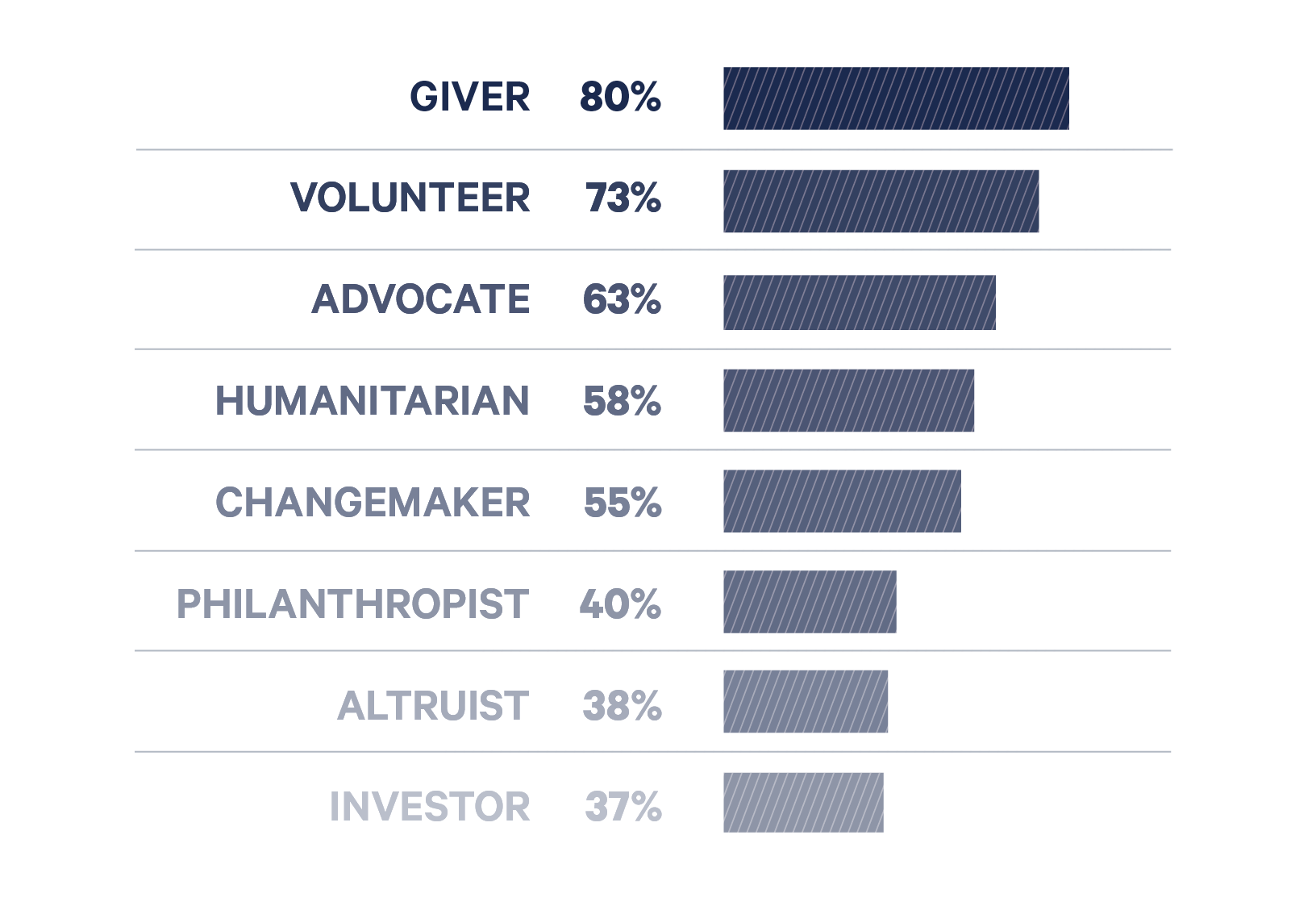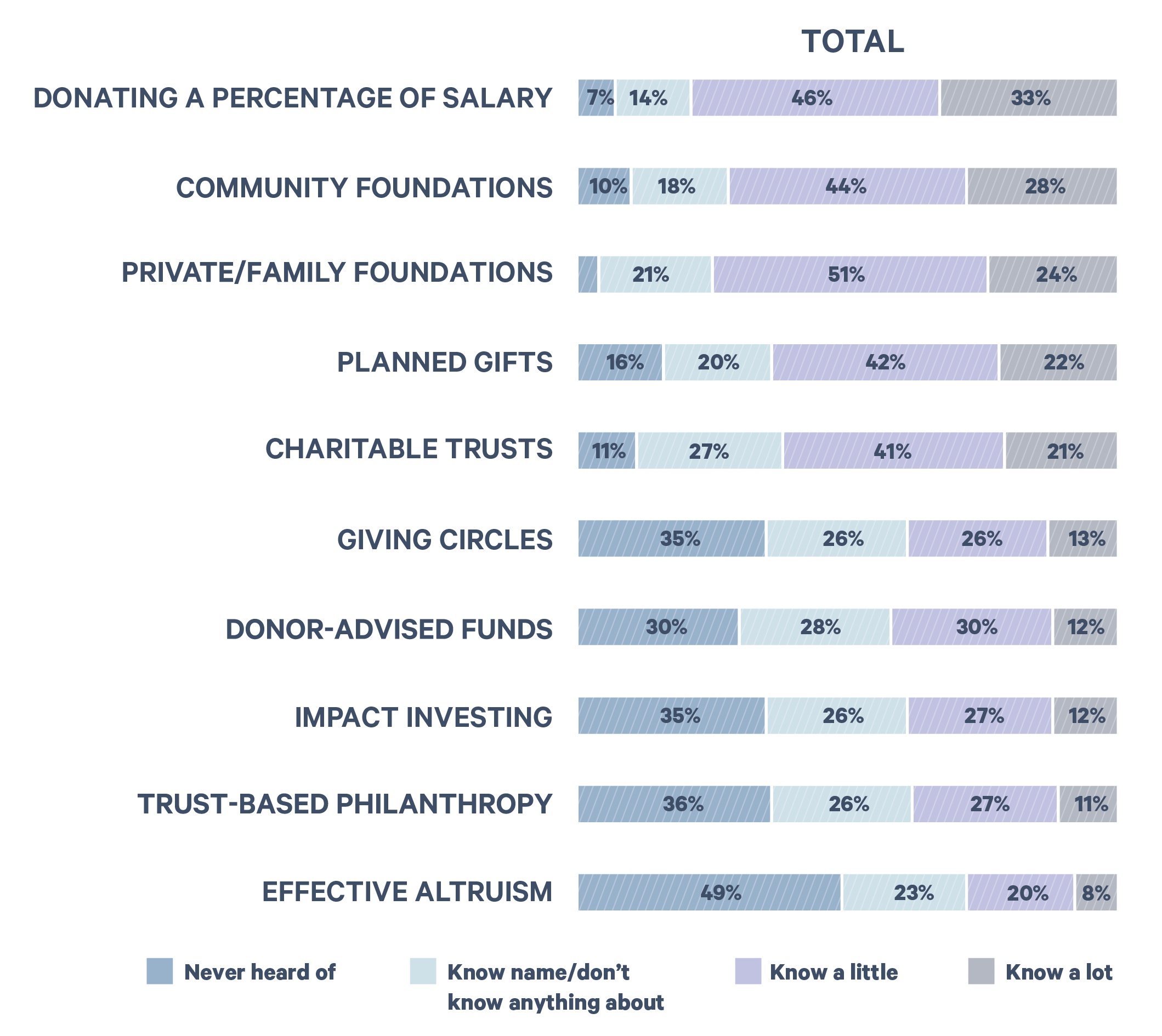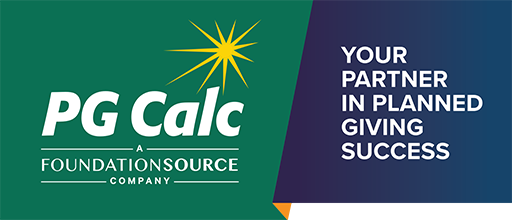As they reshape philanthropy, the Millennial and Gen Z generations are prioritizing social impact, embracing technology, and seeking innovative ways to engage in their giving. A report, Shaping Tomorrow: How Gen Z and Millennials View Charitable Giving, based upon a survey conducted by Foundation Source, offers new insights.
These generations proactively seek opportunities to give back through a wide range of charitable activities based upon values and attitudes shaped by the tumultuous years during which they grew up. They are determined to play a role in communities they care about, believe they have an obligation to make an impact, and are ready to get to work!
Gen Z and Millennials seek an array of ways to express their commitment to change and don’t feel constrained to limit their involvement to financial contributions. Both Millennials and Gen Z are shaping the future of philanthropy, but there are distinct differences between the generations.
Focus of Giving – Millennials tend to prioritize causes aligned with their values and beliefs, focusing on social justice, environmental sustainability, and community development. Gen Z is inclined to be even more socially conscious, prioritizing causes related to equity, diversity, and inclusion.
Tech-savvy – Millennials are at ease with digital platforms and often use social media to raise awareness, connect with organizations, and mobilize their networks. Gen Z are digital natives who grew up with technology and are fluent with digital tools for philanthropy, including social media, mobile apps, and online giving platforms.
Flexible Giving Plus Engagement – Millennials are open to unconventional giving methods, such as crowdfunding, peer-to-peer giving, and impact investing. Gen Z tends to value hands-on experiences and opportunities to volunteer their time and skills, in addition to donating money.
Transparency and Accountability – Millennials expect nonprofits to be transparent about their operations, impact, and financial practices. Gen Z takes it a step further supporting brands and organizations that align with their values and have a positive social or environmental impact.
These generations envision their charitable activity quite broadly. When asked how they want to be described in the future, the label “giver” ranks at the top, suggesting a generous and caring mindset as well as a desire for a more direct relationship with their giving. This is followed by “volunteer,” “advocate,” “humanitarian,” and “changemaker.”
In total, the respondents aspired to be described as:

Gen Z and Millennials actively engage in charitable activities well beyond traditional philanthropy. Their giving tends to be pragmatic, both informal and direct, reflecting a desire to make an immediate impact. Family, passion for a cause, and local community are the biggest drivers of their giving. However, respondents also expressed an interest in learning more about approaches such as giving circles, impact investing, and trust-based philanthropy. This presents an opportunity to have an even greater impact by combining volunteer involvement and the tools of charitable gift planning to drive outcomes.
Some aspects of traditional philanthropy and planned giving may resonate with Millennials and Gen Z, but others need a refresh. Generally, they may be aware of the range of charitable giving techniques, though they may not fully appreciate the opportunities. A majority say they already know about planned gifts and charitable remainder trusts, and a significant number are aware of donor advised funds.
How familiar respondents are with each giving approach:

Planned giving programs may have an opportunity to educate and guide these younger donors about how the tools of charitable gift planning can allow them to magnify their impact by melding their charitable interests with their financial needs. Both Gen Z and Millennials began their charitable activities early; Millennials at age 18, Gen Z beginning their giving journey even younger at age 14. This engagement early in life affirms previous research by the Giving USA Foundation showing a significant number of donors include a charitable bequest in their first estate plan before age 50, and that nearly 95% of those future gifts are completed at or above the initial amount.
Millennials and Gen Z are the future. While they share a commitment to philanthropy, their approach is influenced by their unique experiences. The report suggests several strategies for building support among Millennials and Gen Z:
Family First – Family plays a significant role in influencing giving for these generations. Starting early can help reinforce a lifelong commitment to social change.
Greater Inclusion – Charitable organizations should seek ways to enhance engagement for all genders and people of diverse racial and ethnic backgrounds.
Look Beyond Dollars – Younger donors may not yet have the financial resources to make large donations, but they want to be involved now.
Awareness Of Giving Approaches – Both Gen Z and Millennials have some awareness of gift planning techniques, but there is room for improvement. With increased knowledge, they may be more inclined to get involved.
Make It Personal – Community and causes with deep personal meaning are primary motivators for charitable engagement.

